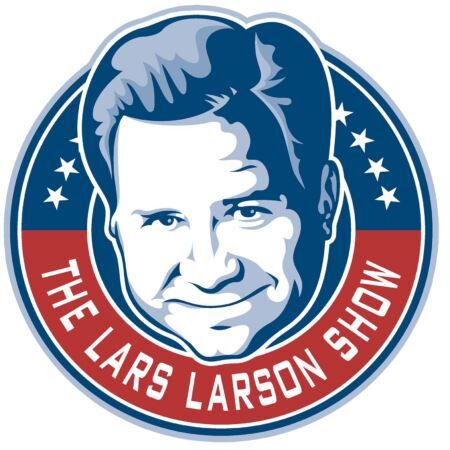NCAA bans 3 college basketball players for betting on their own games at Fresno St, San Jose St
News > Sports News

Audio By Carbonatix
12:37 PM on Wednesday, September 10
By CLIFF BRUNT
The NCAA banned three men's college basketball players for sports betting on Wednesday, saying they had bet on their own games at Fresno State and San Jose State and were able to share thousands of dollars in payouts.
The NCAA Committee on Infractions released findings from an enforcement investigation that concluded Mykell Robinson, Steven Vasquez and Jalen Weaver bet on one another’s games and/or provided information that enabled others to do so during the 2024-25 regular season; two of them manipulated their performances to ensure certain bets were won. The eligibility was permanently revoked.
The NCAA said a sports integrity monitoring service in January notified Fresno State and NCAA enforcement staff that a Nevada sportsbook operator had flagged suspicious prop bets on Robinson. The investigation began a week later. The Associated Press could not immediately locate the former players for comment.
According to the NCAA, Robinson and Vasquez had been roommates at Fresno State during the 2023-24 season. In January 2025, Robinson and Vasquez, now at San Jose State, discussed over text message that Robinson planned to underperform in several statistical categories during a regular-season game. Robinson also placed multiple bets on Weaver, his teammate at Fresno State in 2024-25, the NCAA found.
The game that drew attention to Robinson was Fresno State’s Jan. 7 matchup with Colorado State. The NCAA said he had three bets based on his his performance – one was $200 to win $1,450; the second was $800 to win $5,800; and the third was $1,200 to win $8,700.
Investigators found that before that game, Robinson told his mother to transfer money by Apple Pay to Vasquez so Vasquez could coordinate a $200 bet on Robinson’s under-line for Robinson. After the game, the NCAA said, Vasquez helped Robinson transfer $1,425 of the winnings to Robinson’s mother. On Jan. 10, Vasquez provided $200 to Robinson.
Also last season, Robinson placed 13 daily fantasy sports over-line and under-line prop bets totaling $454 on parlays that included his own performance. He collected $618 on one occasion, the NCAA said.
Robinson placed bets on Weaver before a game in late December 2024 after he and Weaver exchanged information about their respective betting lines, the NCAA said. Weaver also placed a $50 prop bet on a parlay for himself, Robinson and a third athlete, and he won $260.
Vasquez and Robinson failed to cooperate with the enforcement staff’s investigation, the NCAA said. Weaver cooperated and agreed to the violation in his case.
All three were released from their respective teams and are no longer enrolled at their previous schools. Neither school was punished.
Fresno State said it cooperated willingly with the NCAA.
“The university proactively shared reported information concerning sports wagering activity with the NCAA and worked collaboratively with the NCAA staff throughout the investigation,” the school said in a statement. “While the eligibility consequences for the former student-athletes are significant, the case ultimately resulted in a Level III/Secondary violation and no sanctions for the institution. The university continues to have confidence in the Fresno State Athletics’ culture and is grateful to conclude this matter.”
San Jose State said in a statement that it is aware of the decision and noted that Vasquez had already been removed from the roster several months ago. He graduated in May 2025.
The latest case comes eight years after a 2017 federal investigation into off-the-books payments to players and their families that, at the time, was against NCAA rules and one of the biggest scandals in the sport’s history.
Since then, the growth of legalized gambling across the United States has raised concerns for college sports leaders and there have been allegations against schools involving betting, including some against three other basketball programs earlier this year.
The NCAA in June said that “several sports betting-related violations by staff members at NCAA schools” have been resolved in recent years and noted its enforcement staff was working on issuing notices of allegations in several ongoing gambling cases.
“The enforcement staff’s sports betting-related caseload has significantly increased in recent years, and our staff — including our new sports betting integrity unit — has been effective in detecting and pursuing violations,” Jon Duncan, NCAA vice president of enforcement, said then.
The nation's largest college sports organization, overseeing some 500,000 athletes, also said it was considering a proposal that would allow athletes and staff members to bet on professional sports and shift enforcement efforts to college sports betting and “behaviors that directly impact game integrity.” The Division I Council introduced the proposal that will be considered this fall and be implemented if Divisions II and III officials also approve.
Current NCAA rules do not allow athletes or institutional staff to engage in sports betting for any sports that have NCAA championships; bets by an athlete on their own team or own sport risks a lifetime ban from college athletics. Those rules would not change under the pending proposal.
___
Get poll alerts and updates on the AP Top 25 throughout the season. Sign up here and here (AP mobile app). AP college basketball: https://apnews.com/hub/ap-top-25-college-basketball-poll and https://apnews.com/hub/college-basketball










